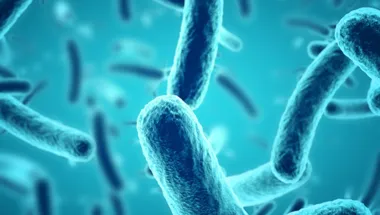
Dr Miguel Reis Ferreira
Senior Clinical Lecturer
Research interests
- Cancer
- Host-Microbiome Interactions
- Artificial Intelligence
Contact details
Biography
Miguel Reis Ferreira is a specialist in clinical oncology. He underwent his medical degree and specialist training in Lisbon, Portugal. In 2011 he enrolled in the prestigious Doctoral Programme for Physicians, sponsored by the Gulbenkian Foundation (Portugal). He then undertook research at the Institute of Cancer Research (ICR) at the Royal Marsden London, UK. His researched focused on the role of the intestinal microbiota in the development of gastrointestinal side-effects of radiotherapy. This resulted in the first large-scale clinical study researching associations between the microbiome and radiation enteropathy, where he identified that patients with these side-effects had a higher abundance of bacteria producing short chain fatty acids, which then steeply decreased during radiotherapy and did not return to normal.
Miguel received a ICR/RMH Biomedical Research Centre (BRC) post-doctoral award during which he used metabolomics to understand the impact of pelvic radiotherapy on metabolic profiles, which provided further validation of his findings with bacterial community profiling.
He was appointed as a substantive clinical oncologist at Guys and St Thomas' in October 2018 and, subsequently, as a senior clinical lecturer at King’s College London. He is interested in using knowledge on the interactions of the microbiota with cancer therapies to develop more targeted and effective treatment.
Miguel is advancing the research initiated during his PhD to develop tools for predicting radiation-induced gastrointestinal side-effects resulting from pelvic radiotherapy. Additionally, he is collaborating with industry to develop clinical trials to mitigate the occurrence of these side-effects.
He is also interested in head and neck cancers, diseases with poor outcomes despite aggressive treatment, and where there is an urgent need for improvement. He has been working to better understand how tumour-associated bacteria interact with cancer and cancer-associated immune cells, with an aim to improve treatment and prognostication in these cancers. He has established national and international collaborations to make this work possible and is currently supported by Guys Charity and the City of London Cancer Centre (RADNET) consortium. His work related to this topic has been presented internationally and published in high impact journals.
More recently, he is also using clinical data to understand whether bacteria can help in better treating brain tumours.
Research

Centre for Host-Microbiome Interactions
Millions of microorganisms live in and on our bodies forming microbiomes on different surfaces. Researchers in the Centre for Host Microbiome Interactions study our relationship with these bacteria and fungi in health or in oral and systemic diseases such as periodontitis, candidiasis, oral cancer and Alzheimer’s disease.
Research

Centre for Host-Microbiome Interactions
Millions of microorganisms live in and on our bodies forming microbiomes on different surfaces. Researchers in the Centre for Host Microbiome Interactions study our relationship with these bacteria and fungi in health or in oral and systemic diseases such as periodontitis, candidiasis, oral cancer and Alzheimer’s disease.
